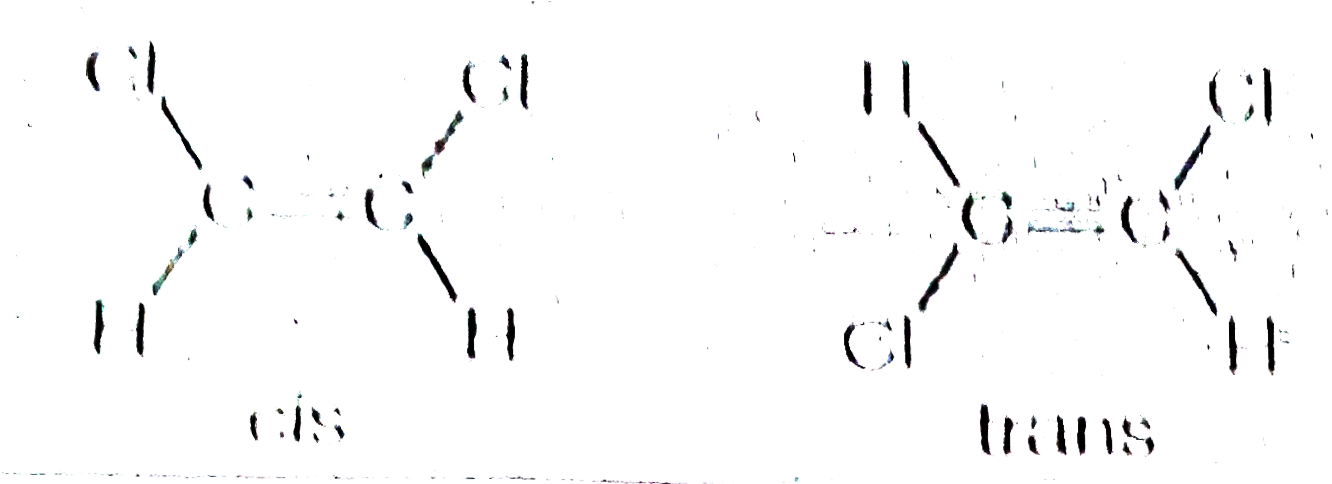Why do alcohols possess higher boiling points as compared to those of corresponding alkanes ?
Step-by-Step Solution:
1. Understanding the Structures:
- Alcohols have the general formula R-OH, where R is an alkyl group (like CH3 for methanol).
- Alkanes, on the other hand, have the general formula CnH2n+2 (like CH3-CH3 for ethane).
2. Identifying Intermolecular Forces:
- In alcohols, the presence of the hydroxyl group (-OH) allows for the formation of hydrogen bonds.
- Hydrogen bonds occur between hydrogen atoms and highly electronegative atoms such as oxygen, nitrogen, or fluorine.
3. Comparing Bond Strength:
- Hydrogen bonds are significantly stronger than the intermolecular forces present in alkanes, which are primarily weak van der Waals (dispersion) forces.
- Van der Waals forces arise from temporary dipoles that occur in molecules, which are much weaker than hydrogen bonds.
4. Relating to Boiling Points:
- The boiling point of a substance is influenced by the strength of its intermolecular forces. Stronger forces require more energy to overcome, leading to higher boiling points.
- Since alcohols have strong hydrogen bonds, they require more energy (in the form of heat) to break these bonds when transitioning from liquid to gas, resulting in higher boiling points.
5. Conclusion:
- Therefore, alcohols possess higher boiling points compared to corresponding alkanes due to the presence of strong hydrogen bonds in alcohols, while alkanes are held together by weaker van der Waals forces.
- Alcohols have the general formula R-OH, where R is an alkyl group (like CH3 for methanol).
- Alkanes, on the other hand, have the general formula CnH2n+2 (like CH3-CH3 for ethane).
- In alcohols, the presence of the hydroxyl group (-OH) allows for the formation of hydrogen bonds.
- Hydrogen bonds occur between hydrogen atoms and highly electronegative atoms such as oxygen, nitrogen, or fluorine.
- Hydrogen bonds are significantly stronger than the intermolecular forces present in alkanes, which are primarily weak van der Waals (dispersion) forces.
- Van der Waals forces arise from temporary dipoles that occur in molecules, which are much weaker than hydrogen bonds.
- The boiling point of a substance is influenced by the strength of its intermolecular forces. Stronger forces require more energy to overcome, leading to higher boiling points.
- Since alcohols have strong hydrogen bonds, they require more energy (in the form of heat) to break these bonds when transitioning from liquid to gas, resulting in higher boiling points.
- Therefore, alcohols possess higher boiling points compared to corresponding alkanes due to the presence of strong hydrogen bonds in alcohols, while alkanes are held together by weaker van der Waals forces.
Topper's Solved these Questions
- CHEMISTRY-2017BOOK - ICSECHAPTER - CHEMISTRY-2017EXERCISE - Question (Answer the following questions)
5 Videos
- CHEMISTRY-2017BOOK - ICSECHAPTER - CHEMISTRY-2017EXERCISE - Question (Answer the following)
4 Videos
- CHEMISTRY IN EVERYDAY LIFEBOOK - ICSECHAPTER - CHEMISTRY IN EVERYDAY LIFEEXERCISE - EXERCISE (PART - II (DESCRIPTIVE QUESTIONS) (LONG ANSWER QUESTIONS))
19 Videos
- CHEMISTRY-2018BOOK - ICSECHAPTER - CHEMISTRY-2018EXERCISE - Question (Answer the following question)
5 Videos
Similar Questions
Knowledge Check
Ethyl alcohol has much higher boiling point than ether because
Amolecular weight of ether is higherBmolecular weight of alcohol is lowerCof hydrogen bonding between the molecules of alcoholDmolecular weight of alcohol is higher
Why amines have higher boiling points than corresponding alkanes ?
View SolutionThe boiling point of alcohol are .... Than corresponding thiols.
View SolutionMelting and boiling points of alkynes are lower than those of the corresponding alkenes.
View SolutionWhy do noble gases have low boiling points ?
View SolutionWhich isomer will have a higher boiling point?

View SolutionWhy do ionic compounds possess high melting and boiling points ?
View SolutionWhy do alkyl chlorides have higher dipole moment as compared to aryl chlorides ?
View Solution
